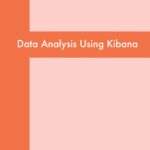Artificial Intelligence (AI) has emerged as a game-changer in various industries, and web development is no exception. As technology continues to evolve, AI’s integration into web development has opened up new possibilities, streamlined processes, and enhanced user experiences. In this article, we will explore the diverse uses of AI in web development and its profound impacts on the digital landscape.
- Automated Web Development:
AI plays a crucial role in automating repetitive tasks in web development, enabling developers to focus on more complex and creative aspects of their work. Automated code generation, for instance, helps in speeding up the development process, reducing errors, and enhancing overall efficiency. Tools like Wix ADI and Bookmark offer AI-driven website builders that create customized websites based on user preferences and content.
- User Experience Enhancement:
One of the significant impacts of AI in web development is the improvement of user experiences. AI algorithms analyze user behavior, preferences, and interactions with a website to provide personalized content and recommendations. Chatbots, powered by natural language processing (NLP), enhance customer interactions by providing real-time assistance, answering queries, and guiding users through websites.
- Predictive Analytics:
AI-driven predictive analytics is transforming how web developers optimize websites. By analyzing user data, AI algorithms predict user behavior, helping developers make data-driven decisions. This enables them to anticipate trends, optimize content, and tailor marketing strategies to meet user expectations. Google’s RankBrain, for instance, uses AI to interpret and understand user search queries, improving search engine results.
- Cybersecurity and Fraud Prevention:
Web developers face the constant challenge of securing websites from cyber threats and fraudulent activities. AI algorithms are adept at identifying patterns associated with malicious activities, helping developers implement robust security measures. From detecting unusual user behavior to preventing DDoS attacks, AI strengthens the security infrastructure of websites and protects sensitive data.
- Content Generation and Optimization:
AI tools are increasingly being used for content creation and optimization. Natural language generation (NLG) algorithms are capable of producing human-like content, which can be utilized for blog posts, product descriptions, and other textual elements on a website. Additionally, AI aids in content optimization by analyzing user engagement data, suggesting improvements, and enhancing SEO strategies.
- Responsive Design and Cross-Browser Compatibility:
Creating a seamless experience across various devices and browsers is a key consideration in web development. AI helps in automating the process of testing and optimizing websites for different screen sizes and browsers. This ensures that users have consistent and optimal experiences, regardless of the device or browser they are using.
- Continuous Learning and Improvement:
Machine learning algorithms enable websites to adapt and improve over time based on user interactions and feedback. This continuous learning process allows developers to refine website features, enhance functionalities, and address user needs more effectively. AI-driven insights empower developers to make informed decisions for ongoing improvements.
- E-commerce and Recommendation Engines:
AI-powered recommendation engines have become a cornerstone of e-commerce websites. By analyzing user behavior, preferences, and purchase history, AI algorithms can suggest products or content tailored to individual users. This not only enhances user engagement but also contributes to increased sales and customer satisfaction.
- Voice Search and Natural Language Processing:
The rise of voice-activated devices has led to the integration of voice search capabilities on websites. AI, specifically Natural Language Processing (NLP), allows websites to understand and respond to spoken queries. This not only improves accessibility but also enhances the overall user experience by providing a more conversational interaction.
- A/B Testing and Optimization:
AI facilitates more sophisticated A/B testing by analyzing user responses to different variations and suggesting optimal changes. Through machine learning algorithms, developers can identify the most effective design elements, content variations, or feature implementations to maximize user engagement and conversion rates.
- Accessibility Improvements:
AI is making strides in improving website accessibility for individuals with disabilities. Through image recognition, text-to-speech functionalities, and other assistive technologies, AI helps developers create websites that are more inclusive and user-friendly, ensuring a seamless experience for all users.
- Data Analysis and Insights:
The vast amount of data generated by websites can be overwhelming, but AI makes sense of it by providing valuable insights. By analyzing user behavior, traffic patterns, and engagement metrics, developers can make data-driven decisions to refine their strategies and continually enhance the performance of their websites.
- Blockchain Integration for Security:
AI and blockchain technologies are converging to provide enhanced security solutions. Integrating AI with blockchain helps in creating secure and transparent web environments. This is particularly relevant for websites dealing with sensitive information or transactions, as it ensures the integrity and confidentiality of data.
- Virtual and Augmented Reality Integration:
AI contributes to the development of immersive experiences through virtual and augmented reality (VR/AR). By analyzing user interactions and preferences, AI enhances the personalization of these experiences, making them more engaging and relevant. This is particularly evident in industries such as gaming, education, and virtual shopping experiences.
- Edge Computing for Faster Performance:
AI-driven edge computing is optimizing the performance of websites by processing data closer to the source. This reduces latency and enhances the speed of interactions, which is crucial for real-time applications. Edge computing, combined with AI, is particularly beneficial for websites with high-performance requirements, such as streaming services and online gaming platforms.
As AI continues to advance, its role in web development will undoubtedly expand, bringing forth innovative solutions and further shaping the digital landscape. The uses of AI in web development span from automation and enhanced user experiences to cybersecurity and content optimization. Embracing AI technologies empowers developers to create more sophisticated, responsive, and secure websites, ultimately catering to the dynamic needs of users in the ever-evolving online world.



